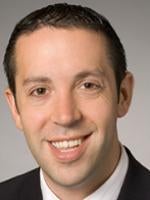In Shammas v. Focarino, the US Court of Appeals for the Fourth Circuit issued a decision that raises significant issues for trademark applicants to consider when determining whether to appeal a refusal by a PTO examiner. Shammas had filed a federal trademark application for the mark Probiotic for use in connection with fertilizer products. The PTO examiner refused to register the applied-for mark on the grounds that it was generic and descriptive. Shammas appealed the refusal to the Trademark Trial and Appeal Board, which affirmed the refusal to register.
The Lanham Act provides that a trademark applicant who is dissatisfied with the PTO’s review of an application has two options to seek a review of an adverse ruling. The first option is to appeal the ruling to the Court of Appeals for the Federal Circuit. The second option is to commence a de novo action in a federal district court, naming the PTO’s director as defendant. Shammas elected to pursue the second option and when the district court upheld the refusal to register, it granted the PTO’s motion to direct Shammas to pay all of the PTO’s expenses in the proceeding, which included the salary expenses of the PTO attorneys and a paralegal who were required to defend the Director, totaling more than $36,000. In making its ruling, the district court applied the statute which requires that if the dissatisfied applicant commences a de novo action in a federal district court, “all of the expenses of the proceeding shall be paid by the party bringing the case, whether the final decision is in favor of such party or not.” Shammas then took the appeal to the Fourth Circuit challenging the lower court’s authority to award attorneys’ fees and paralegal fees. Shammas argued that the award of expenses amounted to fee-shifting which was not permitted unless the statute makes Congress’s intention clear by expressly referring to attorney’s fees.
A divided Fourth Circuit panel affirmed the District Court’s ruling requiring Shammas to pay the PTO’s fees. The Fourth Circuit held that the term “expenses” is sufficiently broad to include attorneys’ fees and that the inclusion of the term “all” before “expenses” in the statute indicated that Congress intended the payment requirement to include attorneys’ fees. The Fourth Circuit further noted that this holding was supported by its reading of the Lanham Act’s structure and legislative history.
In view of the decision in Shammas, trademark applicants should be cognizant of the potential additional costs it may incur when appealing a refusal to register an applied-for mark. Since a de novo action in district court allows for the parties to conduct additional discovery and submit further evidence, the applicant could be faced with significant costs in pursuing an appeal. As per the holding in Shammas, those costs can apply regardless of whether the applicant is successful.




 />i
/>i

